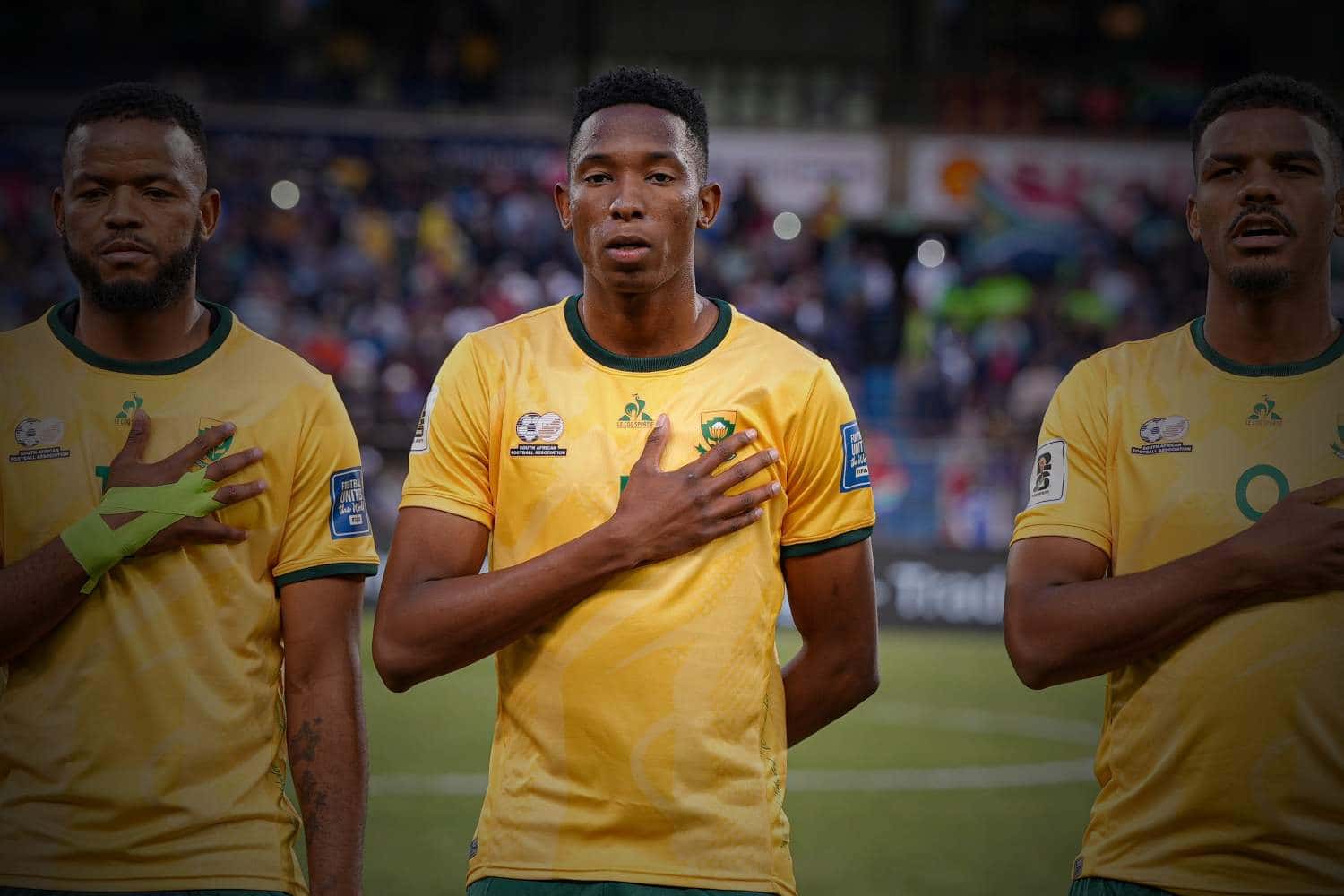South Africa’s men’s national team, Bafana Bafana, have qualified for the 2026 FIFA World Cup.
This confirmation followed a 3–0 victory over Rwanda at Mbombela Stadium on Tuesday night, 14 October 2025.
This is South Africa’s first merit-based qualification since 2002.
“On merit” means they earned their place through the standard qualifying matches and points system, not as automatic hosts, like in 2010.
The match itself removed the uncertainty that had crept in after earlier setbacks in the group. South Africa’s previous win over Lesotho was forfeited due to an ineligible player, which cost the team three points.
A goalless draw against Zimbabwe added pressure. That meant the final game needed to be straight-forward: win, and remove the variables. Bafana Bafana did exactly that.
Thalente Mbatha scored in the sixth minute with a powerful finish to make it 1–0. Oswin Appollis added the second in the 27th minute after sustained pressure and a cut-back from Aubrey Modiba that helped open the defence.
Evidence Makgopa made it 3–0 in the 72nd minute with a near-post header from a corner. At that point, the task was simple: keep control, see out the game, and ensure goal difference and game management remained solid until the final whistle.
The team succeeded in doing that.
For readers who do not follow the qualifying format closely, here is the key idea: teams are divided into groups, they play each other, and points are awarded (three for a win, one for a draw, none for a loss).
The group winner qualifies automatically, while certain runners-up can still progress via playoffs, depending on the continental rules and the expanded format of the 2026 tournament.
South Africa’s win against Rwanda secured the necessary position in their group and, with other results taken into account, locked in their place at the finals.
This return to the World Cup is South Africa’s fourth appearance overall (1998, 2002, 2010, and now 2026) and the first time since 2002 that qualification has been achieved purely through results in the qualifiers.
It marks a steady improvement from the team over the last cycle, where consistent defensive structure, quick transitions, and effective set pieces have been noticeable strengths.
Elsewhere on the continent, several African nations have also booked their tickets to 2026.
These include Egypt, Senegal, Cape Verde, Morocco, Ivory Coast, Algeria, Tunisia, and Ghana.
The 2026 World Cup will be hosted across the United States, Mexico, and Canada, with an expanded 48-team format.
This gives Africa more places than in previous editions, but qualification still requires consistent results under pressure, which South Africa delivered in the closing stages.
What happens next is straightforward. South Africa will wait for the World Cup draw, continue with training camps, and schedule warm-up matches to fine-tune tactics, fitness, and squad depth.
The aim in simple terms will be to carry the habits that worked in qualifying—compact defending, set-piece efficiency, and converting early chances—into the World Cup group phase.
For supporters, the message is clear and factual: Bafana Bafana are going to the 2026 FIFA World Cup, and they got there the hard way—by winning when it mattered and finishing the job on the pitch.
